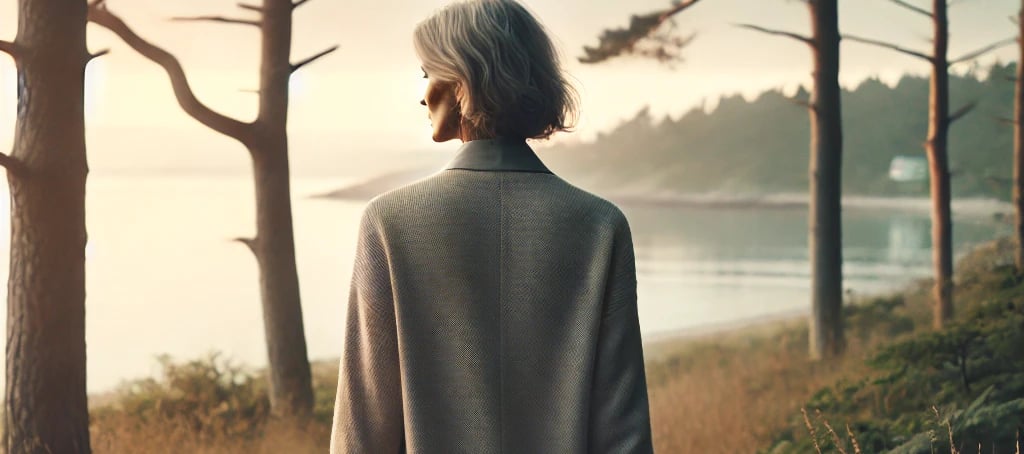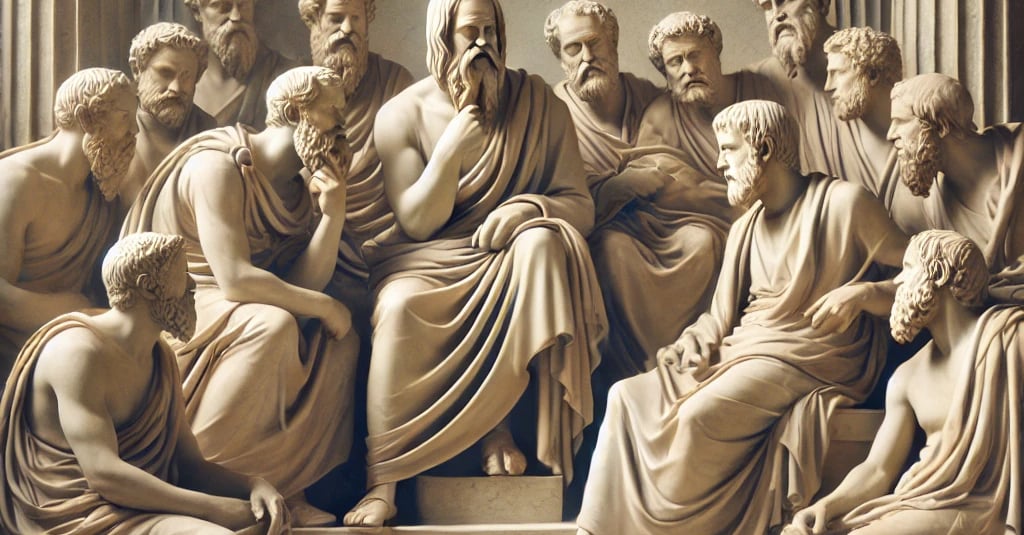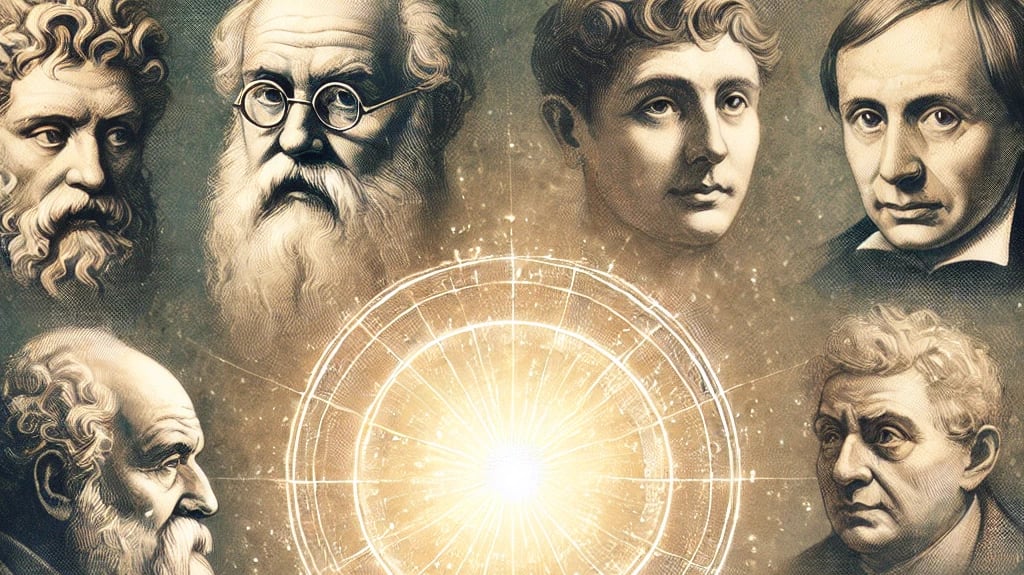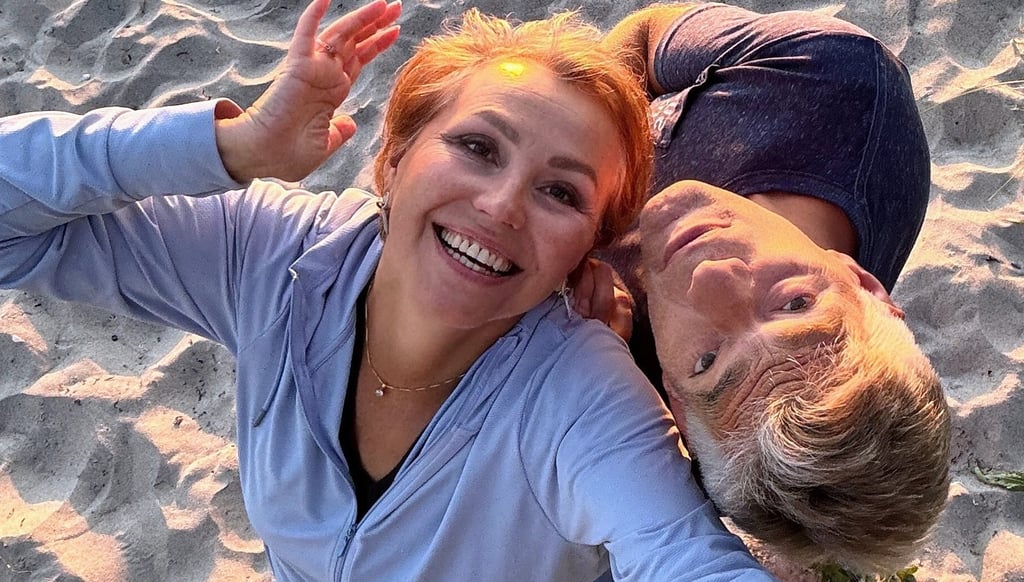Turns out, I don’t miss being 35
Turns out, I don’t miss being 35


Something changes after fifty. Not overnight, but quietly. The things that used to feel urgent lose their shine. And in their place comes a different kind of curiosity - about how to age well, not just look young. About how to feel more like yourself, not less.
Lately, I’ve been asking myself:
Who do I turn to now, not just to stay healthy or youthful, but to age beautifully, wisely, and well?
Not just with a good skincare routine (though I’m not giving that up), but with poise. With grace. With strength. With something resembling peace.
And strangely, I haven’t found my answers in the latest wellness trends, but in the voices of the past - those philosophers who lived centuries ago, and still seem to whisper something timeless into the air.
They didn’t promise eternal youth. But they knew something about the human spirit, about becoming more ourselves as time unfolds. About how to live - and how not to fear growing older, or even the end.


Why go back 2000 years?
It’s not that I expect them to have all the answers. In fact, I don’t even want that anymore.
But I do believe they’ve asked better questions than we often do today. Questions about time, purpose, joy, solitude, love, usefulness, death - and how to live while we still can. And how not to be afraid – of living, aging, or dying.


This little series is my way of sitting beside them - inviting them into my world, borrowing a little of their wisdom and polishing it gently with my own reflections. I’m not trying to become a philosopher. I just want to stay curious. Maybe even light-hearted. To age not with dread but with delight.
What I’m exploring - and why?
In the coming weeks, I’ll explore how seven philosophers - from Cicero and Confucius to Nietzsche, Montaigne, and Simone de Beauvoir - thought about aging.


Each article will highlight five insights from one philosopher, filtered through my own lens. Not as a teacher. Not as an expert. Just as a woman in her late fifties, walking this road and wondering aloud:
Can ancient wisdom help us live more fully today?
This isn’t a scholarly project. It’s a personal invitation. It’s also a small gift - to myself, and perhaps to you too.
If you’re somewhere on this road too…
If you’re somewhere in your 50s or 60s, or if you simply feel like you’re crossing into a new season of life, I hope this series feels like a soft hand on your shoulder.
A reminder that aging is not just about letting go, but about letting in.
And that it’s not too late to become someone you truly like.


This article is part of my series on Aging with wisdom.
What's next?
1. Cicero. “On Old Age” (De Senectute).
Who: Roman statesman and philosopher, lived until 63.
Main idea: Aging is not a burden but a phase for wisdom, reflection, and contribution.
Key advice:
Aging offers freedom from passions and pressures of youth.
Mental cultivation can continue lifelong.
One should prepare for aging by building a virtuous character and engaging the mind.
He admired those who stayed active through reading, teaching, gardening, and public service.
“For what is more delightful than an old age surrounded by the enthusiasm of youth?”
Read more: Cicero would’ve been a great dinner guest.
2. Confucius. The grace of ripening.
Who: Chinese philosopher, died at 72.
Main idea: Life is a process of harmonizing with oneself and the world. With age comes wisdom and balance.
Milestones of aging (from The Analects):
At 15, I set my heart on learning.
At 30, I stood firm.
At 40, I had no more doubts.
At 50, I knew the will of Heaven.
At 60, I heard it with a docile ear.
At 70, I could follow my heart’s desire without breaking any rule.
Aging here is not decline. It’s alignment with one’s nature.
Read more: Confucius didn’t rush. Maybe I shouldn’t either.
3. Friedrich Nietzsche. Eternal becoming.
Who: German philosopher who lived only to 55, but had deep insight into life stages.
Relevant idea: Amor fati - love your fate, all of it, including aging and loss.
Advice:
Reinvent yourself continuously, even into old age.
Don’t become a copy of your younger self - be new, even when old.
Use aging as fuel for creativity and authenticity.
“What does not kill me makes me stronger” - yes, even gray hair and slower knees.
Read more: Too old for pretending, too young to stop
4. Michel de Montaigne. Embrace mortality to live fully.
Who: French Renaissance philosopher, lived until 59.
Main idea: Aging is a reminder to live more fully, not less.
Advice:
Reflect on death - not to be morbid, but to strip away illusions.
Enjoy simple pleasures.
Stay curious and continue to write, read, and question until the end.
“To philosophize is to learn how to die.” (Which also means: to learn how to live.)
5. The Stoics: Seneca, Epictetus, Marcus Aurelius
Their common ideas:
Value your time above all else.
Don’t complain about aging; embrace it as a natural process.
You can’t control your body’s decline, but you can control your mind and choices.
Seneca (died at 65): “As long as you live, keep learning how to live.”
Marcus Aurelius (died at 58): “Do not act as if you were going to live ten thousand years.”
6. Arthur Schopenhauer. The quiet strength of age.
Who: German philosopher, lived to 72.
Main idea: In youth we seek pleasure and affirmation; in older age, we find peace in detachment.
Advice:
True happiness is found within, not in external excitement.
Aging brings clarity by reducing desire.
Value solitude, reflection, and self-understanding.
He believed the second half of life is when one reads the text of life, while the first half is simply writing it.
7. Simone de Beauvoir. Aging as a human condition.
Who: French existentialist, lived to 78.
Main idea: Society marginalizes the old, but aging is an experience rich with insight.
Advice:
Fight against ageism - both societal and internalized.
Stay engaged, political, creative, and curious.
The meaning of life doesn’t end at 60 - it may begin anew.
She wrote “The Coming of Age” a powerful, philosophical, and very personal book.
Worlds Within
Beautiful. Unfinished. You.
Subscribe for the Newsletter with fresh inspiration
Contact me:
© 2024 Worlds Within. All rights reserved.
life@worldswithin.life
